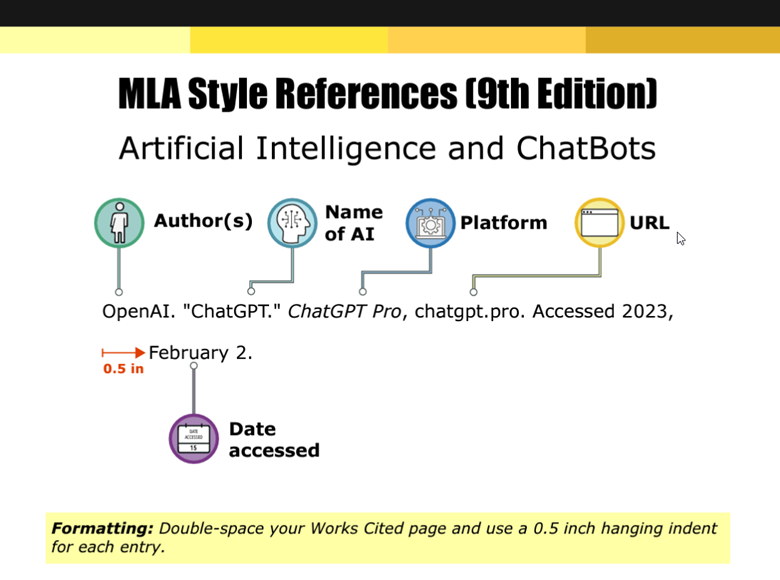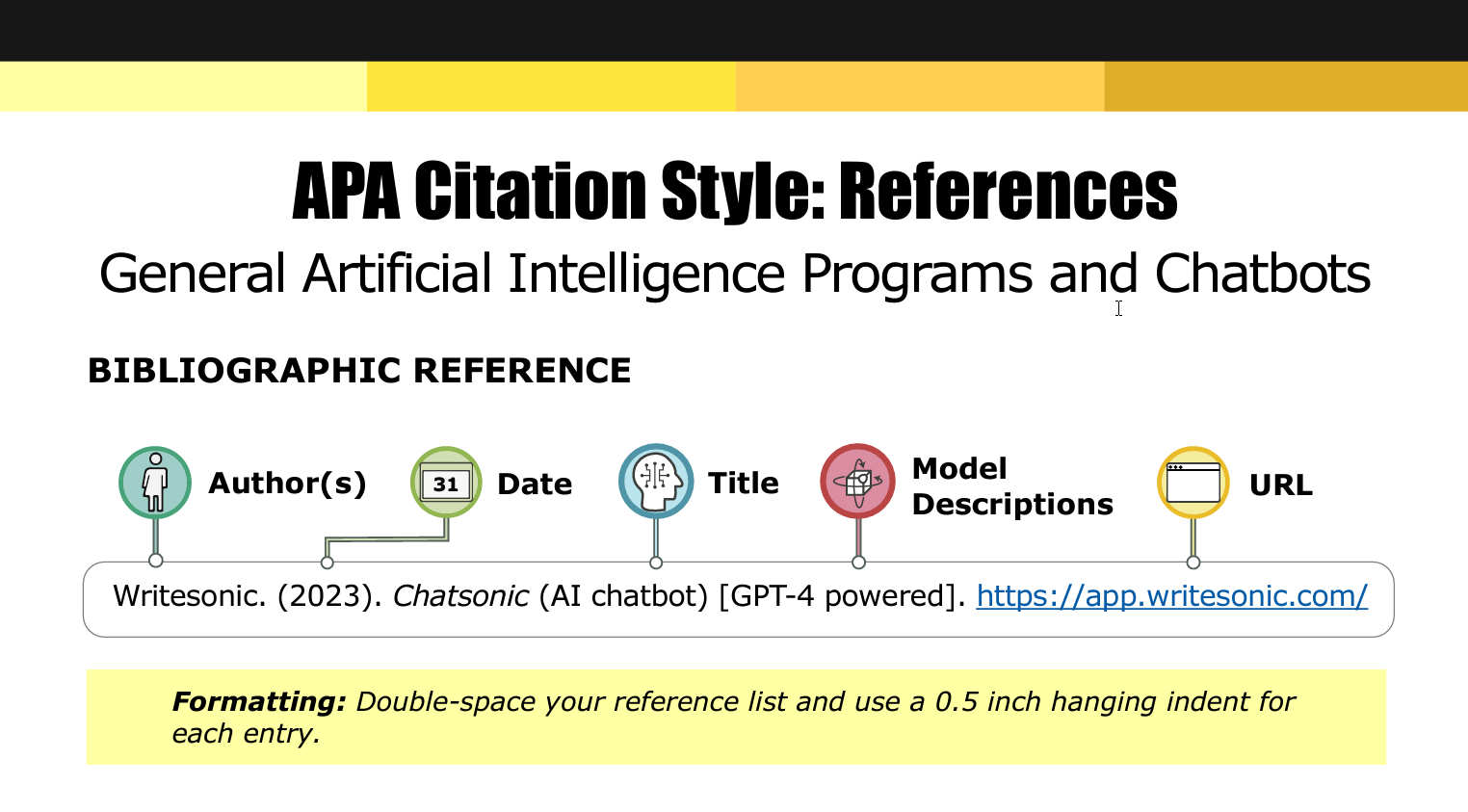Citing Artificial Intelligence
As we continue to navigate the rapidly changing landscape of artificial intelligence and technology, it is important to model and teach our students effective research skills and ethical citation practices. The MLA style and APA style guides have recently developed resources to guide students in citing artificial intelligence using correct formatting. Students can bookmark these pages for easy reference as they continue their learning journey through high school. Most HCOS Grad level courses require MLA style formatting, but some subject areas follow other citation practices (e.g., APA, Chicago). Additionally, students can refer to the following examples and infographics developed by the University of Waterloo Library research guide (2023):
Outline of an MLA Citation for AI:
Author/Creator. "Name of chatbot." Title of platform where accessed, Full URL, Date Accessed (optional).
Formatting: Double-space your reference list and use a 0.5 inch hanging indent for each entry's second and subsequent lines.
Real-World Example:
OpenAI. "ChatGPT." ChatGPT Pro, chatgpt.pro/, February 2, 2023.
Outline of an APA Citation for General Artificial Intelligence Programs and Chatbots:
Name of Company/creator of generative AI Tool. (Year). Name of the generative AI program (model of program) [Large language
model]. URL.
Formatting: Double-space your reference list and use a 0.5 inch hanging indent for each entry's second and subsequent lines.
Real-World Example:
Perplexity. (2023). Perplexity.ai (AI Chatbot) [Large language model]. https://www.perplexity.ai/
Outline of an MLA Citation for AI:Author/Creator. "Name of chatbot." Title of platform where accessed, Full URL, Date Accessed (optional).
Formatting: Double-space your reference list and use a 0.5 inch hanging indent for each entry's second and subsequent lines.
Real-World Example:OpenAI. "ChatGPT." ChatGPT Pro, chatgpt.pro/, February 2, 2023.


